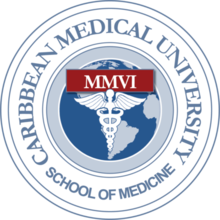 Getting into a U.S. medical school can be a nightmare. Limited admissions make acceptance rates exceptionally low. Maybe that’s why so many students choose to attend Caribbean medical schools each year. Here 10 reasons you should consider heading offshore.
Getting into a U.S. medical school can be a nightmare. Limited admissions make acceptance rates exceptionally low. Maybe that’s why so many students choose to attend Caribbean medical schools each year. Here 10 reasons you should consider heading offshore.
1. Acceptance rates. It’s tough to get accepted in American medical schools. The less desirable the school, the more likely you are to be accepted. Ivy League schools are nearly impossible to get into unless you’re a well-connected legacy with a perfect record. As a result of limited admissions, thousands of perfectly qualified applicants are turned away each year. Some of the more prestigious schools, like Harvard, accept less than 4% of applicants. Caribbean schools get far fewer applications and have a much higher acceptance rate, making it much easier to get in - even if you’ve been turned down by other schools.
2. Less than stellar record? Because there are fewer applicants, your GPA and MCAT scores can be lower than average and you may still be accepted to a Caribbean school. Applicants accepted to Ohio State University, for example, had a mean GPA of 3.81 and a mean MCAT of 35 in the last admissions cycle. Johns Hopkins University applicants ranked higher, with a mean GPA of 3.91 and mean MCAT scores totaling 37.
Students accepted to the American University of the Caribbean (AUC) had an average GPA of 3.3 and MCAT scores of 25, making it an attractive option for students who did not land at the top of the class, but still want to follow the dream.
3. Results. It’s important to note that easier acceptance criteria not make for inferior doctors. Caribbean medical school graduates do just as well or better in testing and in practice as U.S. students; 96% of AUC students passed the USMLE Step 1 on the first attempt in 2012.
Foreign-educated students fare well in practice as well. A 2010 study that analyzed patient outcomes of 244,153 hospital patients found no difference in the quality of care and mortality rates when comparing American-educated and foreign-educated doctors.
4. Clinical Rotations. One of the biggest challenges you’ll face between med school and becoming a doctor is finding a clinical rotation opportunity. Many Caribbean schools are affiliated with American and U.K. teaching hospitals that reserve slots for students coming in. You’ll get the same quality clinical experience as U.S. students, and the majority of qualified students are matched with a program.
Clinical rotations in the U.S. will make your transition to work easier and allow you to build a professional network that includes doctors and medical staff from all over the world.
5. Rolling Admissions. If you miss the admission date for an American school, you’re out for a full year. Most Caribbean schools offer three admissions periods over the course of a year. You can take your time and apply when you’re ready.
6. Cost and financial aid. Caribbean schools are not the cheapest schools you can find, but they aren’t nearly as expensive as some U.S. medical schools. In fact, as private colleges go, they are fairly inexpensive in comparison. Most schools offer reasonably priced campus housing, and the cost of living off-campus is comparable to most American cities.
Worried about finding the money? U.S. financial aid is available for all accredited schools. In fact, about 90% of all student loans approved for American students in foreign schools goes to Caribbean colleges. You may be eligible for grants and some scholarships as well.
7. Student-to-faculty ratio. American medical schools often pack hundreds of students into a lecture hall. Caribbean schools are smaller and more intimate, with 50 students or less to each teacher. You’ll get more personalized attention and more opportunity to ask questions and schedule one-on-one time. You won’t be an anonymous face in the crowd.
8. Accelerated study. Some medical schools in the Caribbean offer accelerated study programs. How much money could you save if you shaved a year off your schooling and started working a year earlier?
9. Cultural experience. For young people wanting to break away, attending medical school in another country is a unique experience in independence. Moving to another country can be anxiety-inducing, but the Caribbean is just a short hop. You can immerse yourself in a colorful tropical culture without having to learn (and study in) a different language, and getting back home to visit the folks won’t mean an all day transatlantic flight. In the event of an emergency, you can be home within hours.
Living in most foreign countries can be a challenge, but the tropics are a popular tourist destination. You’ll find a delightful culture that caters to English-speakers and plenty of activities to enjoy.
10. Lifestyle. The lure of white sands, rippling azure waves, warm weather, and spectacular sunsets is a compelling reason to consider going to school in the Caribbean. You’ll find plenty of ways to relax from the demands of intense studies, whether you prefer hiking or biking on land or any of a million water sports. Nature lovers will be in heaven. Everywhere you look, you’ll find visual and experiential wonders; tropical birds, fish, flowers and foliage, and sweeping ocean vistas.
Choosing a medical college is a huge decision, and there are a lot of things to consider. Thinking outside the box - or the borders - can open up new possibilities for students who can’t get in to a U.S. school or who just want to take advantage of the situation to live on a beautiful tropical island. If you’re going to pay for medical school anyway, there’s little downside to choosing a Caribbean medical school. Just be sure to choose a fully accredited college with a great reputation.







